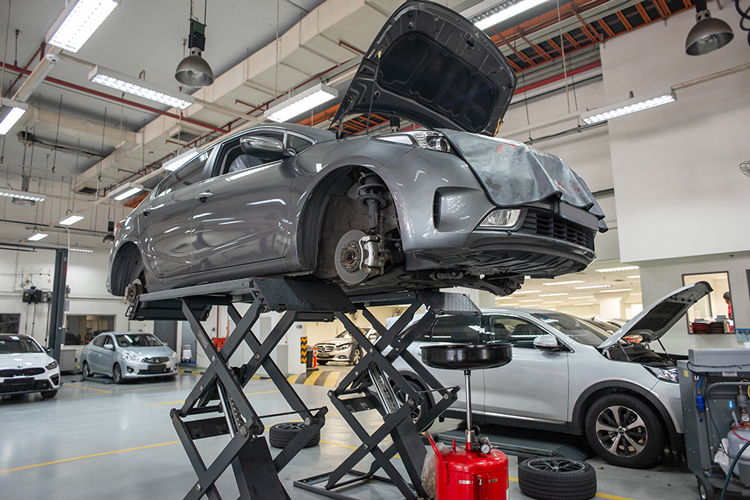
Renew COE or buy a new car? Assess your current vehicle before making a decision. (Photo: 123RF.com)
The number of folks renewing their COE instead of buying a new vehicle is a continuing trend.
Renewing your car’s COE can be more economical – if you can forego your PARF and COE rebates. If that’s the case, paying the current PQP to retain your car for another 10 years is a good deal.
It’s certainly a lot cheaper than forking out for a brand-new car. Besides, most cars will run without major problems for 20 years with proper care and maintenance.
But before you proceed, here’s what you need to look out for.
HISTORY AND ASSESSMENT
A car’s past history is useful in determining if renewing its COE will be worth the money. If you’ve been meticulous with maintenance, then you have less to fear.
However, if you just bought a used car, or are planning to buy one and renew its COE, you need to be more careful. If you do not have the vehicle’s service history, ask the brand’s authorised agent.
But what if it’s a parallel imported car and/or the last owner never kept records? In this case, send it to an independent assessor to check a few critical areas.

FIRST THINGS FIRST
Your first check would be to determine if the car has been in a serious accident.
The car must be hoisted so that the chassis can be examined. Signs of a bad accident include a misaligned chassis, strange welding marks and mismatched paint.

Hoisting a car lets you check if its chassis is straight.
This can cause several long-lasting problems including corrosion, frequent wheel misalignment and leaks during heavy downpour.
If the car in question has these issues, it’s probably not worth renewing the COE.

If the engine is in poor condition, overhauling it will be costly.
DRIVETRAIN
Unless the car’s mileage is relatively high (over 200,000km), an engine over nine years old should not be badly worn.
However, you must check the engine and gearbox. You do this by having the engine oil replaced and the compression checked.
Poor or low compression readings or a smokey exhaust are signs that the engine is very worn and may need an overhaul. Depending on the make/model and condition, an engine overhaul can be quite costly.

Automatic gearbox repairs and overhauls can be expensive.
As for the gearbox, it must operate smoothly and not be leaking. Overhauling the gearbox, especially an automatic one, can be expensive.
Remember, if the transmission is too worn (or shot, for that matter), a replacement is necessary. That won’t be cheap either.
Consider these potential expenses before deciding to renew the COE.

A car’s brakes and suspension are subject to wear and tear, and will need to be replaced.
SUSPENSION & BRAKES
A car’s suspension and brake components are wear-and-tear items. Dampers, brake pads and brake discs can wear out over time.
Failure to replace these components endangers yourself and other occupants. Be prepared to spend on replacements for a car that’s almost 10 years old.
5 common car servicing questions answered
Why are drivers choosing to renew their COEs?
How to maintain your car after revalidating its COE?
3 reasons to extend your COE
3 reasons to buy a new car instead of extending your COE






